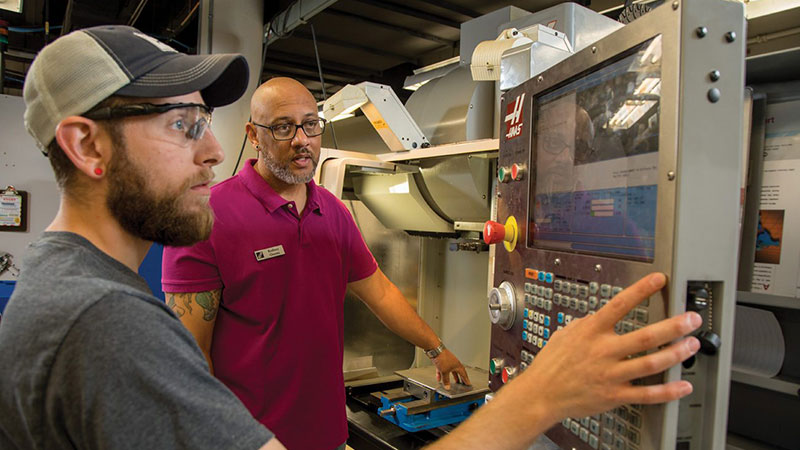
Frank Swanzy Essien Jr.
Frank Swanzy Essien Jr., Ph.D. served as a Lumina research strategy officer from 2016 to 2025.
More about Frank1 of 13
Students of color thinking about going back to school need answers from colleges—and fast
Jan. 22, 2024
Adult learners of color lean on trusted family and friends to help them decide if returning to college fits their hectic lives, according to three studies that explored how Americans choose to finish—or not—a degree.

2 of 13
Popular credential programs should include markers of quality
Oct. 24, 2023
Noncredit courses are increasingly popular, with nearly half of all community college students enrolled in these quick, low-cost programs designed to sharpen skills. But are students – hoping for fast career gains – spending their time and money wisely?

3 of 13
New data can help the future of higher ed. How will its leaders use it effectively?
June 20, 2023
A valuable new toolbox of data is helping some educators use Labor Market Information to closely align programs with labor market demands.

4 of 13
Sounding the alarm: National leaders commit to helping Black learners
April 19, 2023
There are 600,000 fewer Black learners in college today than a decade ago, resulting in devastating lost opportunities. More than half of that decrease hit community colleges, once a popular choice for Black students pursuing better jobs and wages.

5 of 13
Why college? A deep dive into adult learners’ journeys
April 11, 2023
Some want better jobs or need to support their families. Others want to break through longstanding barriers. Adult learners have good reasons for seeking college degrees—but these often aren’t enough.

6 of 13
Adults can return to college, finish, and thrive—with a little support
May 9, 2022
Most adults who return to college can persevere and graduate—if they have enough time and financial support, a new report shows. Nearly three-quarters of the returning adults surveyed earned a postsecondary credential, and most who hadn’t still planned to do so.

7 of 13
Millions are signing up for job training, but are the courses worth it?
Feb. 22, 2022
Noncredit workforce programs are on the front lines of serving our nation’s need for new skills. But these programs vary widely—raising the question of how to ensure positive results for 5 million students who enroll in these courses every year to build better careers and lives.

8 of 13
Veterans deserve help with military ‘skills translation’ to get college credit
Dec. 8, 2021
A new survey shows that U.S. military members and veterans who return to college often struggle to get academic credit for what they’ve learned and the skills they’ve mastered in the service.

9 of 13
Industry certifications offer clear path to jobs during the COVID recovery—and beyond
Nov. 9, 2020
Americans struggling to find and keep jobs amid the global pandemic are discovering a clear path to employment: high-quality credentials that prove both knowledge and skills.

10 of 13
College credit where credit is due – the move toward ‘recognition for prior learning’
Dec. 11, 2019
With a little help, nearly 36 million Americans who spent some time at college but never finished could be encouraged to resume their studies and get their degrees.

11 of 13
The time is right to ensure that all quality learning counts
Nov. 12, 2019
People who want to learn but can’t afford or get access to education and training after high school should be helped with high-quality programs that result in degrees, certificates, and other credentials. As always, though, the question is, how do we ensure that new programs live up to their promi

12 of 13
Inside the Big Confusing Credentialing Tent: A New Mission to Understand Non-Degree Credentials
June 28, 2019
New research is showing the growing value of credentials—but the trouble is, no one seems to fully grasp what credentials are, or how to decipher terms like non-degree and sub-degree.

13 of 13
It’s what you know and how you apply it that matter … not whether you sat through the class
May 13, 2019
Competency-based education programs are growing in popularity and are seen by schools as an important way to reach adult learners and emphasize job readiness among graduates, a new study shows.
